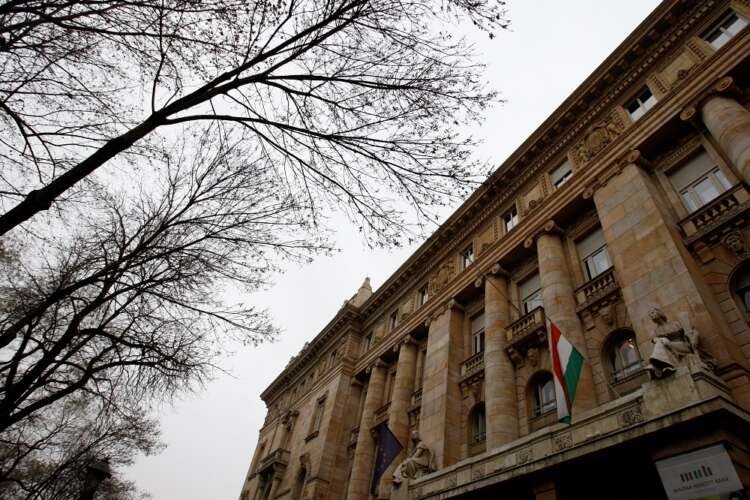Wary about economic growth, Hungary central bank seen slowing rate hikes- Reuters poll


By Krisztina Than
BUDAPEST (Reuters) – The National Bank of Hungary (NBH) is likely to slow the pace of its rate hikes next week, raising its base rate by 60 basis points to 6.0% even as inflation is expected to accelerate to double-digits in the coming months.
The bank’s deputy governor, Barnabas Virag, on Tuesday flagged that the institution could slow the pace of rate rises to about half of the 100-basis-point steps delivered in the past two months.
The median forecast of 15 analysts in a Reuterspoll projects that the NBH will raise its base rate to 6.0% on Tuesday from 5.4%.
In the survey, which sees inflation running at an average 9.55% this year, seven analysts expected a 50-basis-point hike, while three forecast 75 basis points and two projected 60. Three analysts expected another 100-basis-point rise. The Czech and Hungarian central banks, which last Junebecame the first in the European Union to launch big rate hikesto fight inflation, surprised investors earlier this month bylooking ready to step on the brakes, wary of stifling economicgrowth.
“With fiscal consolidation starting, we think that the NBH will be entering the fine-tuning phase of its tightening cycle by reducing the pace of tightening in the base rate next week,” Morgan Stanley said in a note on Friday.
“We expect a 75bp hike to 6.15%, but risks are skewed to a 50bp hike, as outlined by Deputy Governor Virag. Yet, we expect tightening through the 1-week depo on a monthly basis to be maintained at 30bp until July and continue to see rates peaking at 7.20%.”
To plug a budget gap, Hungary on Thursday announced new windfall taxes worth 800 billion forints ($2.19 billion) on what the government called “extra profits” earned by banks, energy companies and other firms. That hit Budapest stocks and rattled investors.
Analysts see the base rate rising to 8.0% bythe end of this year, 60 basis points higher than they expected just a month ago.
Hungary’s forint, central Europe’s worst-performing currency this year, with a 6% decline, has slid since Virag’s remarks on Tuesday, as some investors think the central bank could be slowing the pace of tightening too soon.
Hungarian headline inflation accelerated to 9.5% year-on-year in April, its highest rate since June 2001, coming in above analyst forecasts for a 9.0% increase. Core inflation surged.
Wages are growing by double digits in annual terms.
(Reporting by Krisztina Than)
A central bank is a financial institution that manages a country's currency, money supply, and interest rates. It oversees the banking system and implements monetary policy.
Inflation is the rate at which the general level of prices for goods and services rises, eroding purchasing power. It is often measured by the Consumer Price Index (CPI).
Monetary policy refers to the actions taken by a central bank to control the money supply and interest rates to achieve macroeconomic objectives such as controlling inflation and stabilizing currency.
Economic growth is the increase in the production of goods and services in an economy over a period of time, typically measured by the rise in Gross Domestic Product (GDP).
Interest rates are the amount charged by lenders to borrowers for the use of money, expressed as a percentage of the principal. They influence economic activity and inflation.
Explore more articles in the Top Stories category











